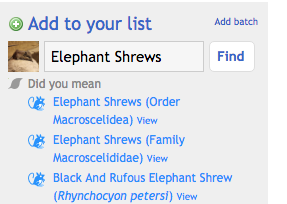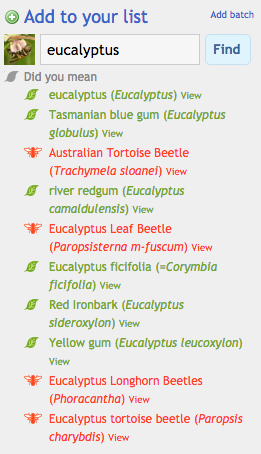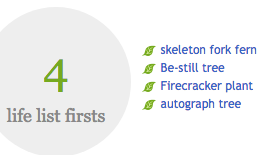Upupa epops
Hello everyone,
A recent discussion here about common names brought up the controversial issue of capitalization. I think this flag is in some way connected to that discussion: https://www.inaturalist.org/flags/211075
I have not seen a post by Nutcracker yet, but I think there were enough posts about it on the previous discussion already to warrant a separate thread.
INaturalist’s current capitalization policy is described here: https://www.inaturalist.org/pages/curator+guide#names
As far as I can tell, this was arbitrarily determined based on the perceived consensus in the field guides for different groups of organisms.
I think common names should be capitalized on iNaturalist for three reasons.
They should be capitalized in general because:
1. Species names should be considered proper nouns, not common nouns. A Red Deer is different from other deer or mammals in general in a similar way to a Samsung Galaxy being different from cell phones in general or the Great Lakes being different from lakes in general. A species is a distinct, specific entity.
2. 2. Capitalization also provides clarity. Saying that you saw a greenish warbler is very little help to anybody, because many warblers in both Europe and North America come with green on them. But if you say that you saw a Greenish Warbler, it is fairly clear that you saw a bird from the distinct species Phylloscopus trochiloidesI.
Here are some articles which I think argue more convincingly than I did (in increasing length):
http://www.worldbirdnames.org/english-names/spelling-rules/capitalization/
http://www.thebirdist.com/2013/07/a-word-on-capitalization-of-bird-names.html
https://mostlybirds.wordpress.com/2015/12/09/should-common-names-of-species-be-capitalized/
3. 3. Specifically in iNaturalist, I think species names should be capitalized because in most instances in which they appear (as far as I can tell), they can be interpreted as titles. In titles, all the important words are capitalized.
Here, “Eastern poison ivy” is the title of the species page for this taxon.
Here, “clovers” is the ‘title’ of the observation. “white clover” is a suggestion for the title to be improved.
Having all the lowercase titles gives an impression more like a casual chatroom than a sleek professional website, in my opinion. Have lowercase species names may be fine in the middle of a paragraph, but in isolation like this they feel wrong.
However, I’m interested in reading other opinions!
Here are a few past threads about capitalization I was able to find:
https://groups.google.com/forum/#!topic/inaturalist/Z1vOjU8U5zo
https://groups.google.com/forum/#!topic/inaturalist/sK6-2cfot3E
https://groups.google.com/forum/#!topic/inaturalist/yyt6Y9R6Ot4
https://groups.google.com/forum/#!topic/inaturalist/l0Xn4JKgfjM
Charlie Hohn
James Bailey
tony rebelo
AfriBats
bouteloua
Reuven Martin
- Both major world bird lists
- eBird
- Observation.org
- BugGuide
- North American Butterfly Association
- Dragonfly Society of the Americas
- Society for the Study of Amphibians and Reptiles
megatherium
--
You received this message because you are subscribed to the Google Groups "iNaturalist" group.
To unsubscribe from this group and stop receiving emails from it, send an email to inaturalist+unsubscribe@googlegroups.com.
To post to this group, send email to inatu...@googlegroups.com.
Visit this group at https://groups.google.com/group/inaturalist.
For more options, visit https://groups.google.com/d/optout.
Tony Iwane
Tim. Reichard
I never contacted the folks who were actively mass-applying the wrong case. It would seem futile to do so. The reply I would expect is "Why should I follow the curator guidelines when the web page developers do not?" or "But this is what the newer web pages have." Many newly revamped site pages always capitalize the first letter of a common name even when it overrides and violates the curator guidelines.
So I'm with sea-kangaroo (or should I say Sea-Kangaroo): Please just set the common name letter case using code, overriding each curator's/user's personal whims, and save us from spending time on this. Let our exported taxon lists finally have beautifully consistent common name casing.
Tim
bouteloua
megatherium
--
James Bailey
Tony Iwane
megatherium
--
Susan Hewitt
On Saturday, January 6, 2018 at 8:33:54 PM UTC-5, Upupa epops wrote:
Tony Iwane
--
You received this message because you are subscribed to a topic in the Google Groups "iNaturalist" group.
To unsubscribe from this topic, visit https://groups.google.com/d/topic/inaturalist/Pn5ZJqFMtjM/unsubscribe.
To unsubscribe from this group and all its topics, send an email to inaturalist+unsubscribe@googlegroups.com.
tony rebelo
To unsubscribe from this group and all its topics, send an email to inaturalist...@googlegroups.com.
bouteloua
I have standardized names per iNat guidelines as I see them because it looks far better when all species in a list display one way or the other. I obviously prefer lowercase and that's how the site has been since I joined six years ago, but looks like we're headed toward title case, so don't let that stop you from flagging actual taxonomic issues...
thank you,
cassi
Julien Renoult
On Sunday, 7 January 2018 02:33:54 UTC+1, Upupa epops wrote:
Charlie Hohn
Alison Sheehey
I do appreciate this thread. Title case please! All species with a common name that are described as unique should be proper nouns. A red fir is not a Red Fir, Abies magnifica. When describing especially rare or endangered plants or animals we need some consistency. As for colloquial names or common names in other countries, the regional filters seem a magnificent work around, but I appreciate for instance knowing the a Mew Gull in North America is a Common Gull in Europe. CalFlora for years had the default common name followed by several colloquial names for a species. (Maybe a subtitle with other regional names would help keep those who believe they are being ignored would help).
It made it so much nicer to know that not all common names are shared, but common names are for the majority of non-science minded folk are not only preferred but the only substantive way of describing a species. Sadly, I have been yelled at while leading trips because some participants felt demeaned by using scientific nomenclature. The word Phainopepla is rejected until explained that, that is its common name. Those who are just learning may turn off if they feel demoralized by use of words they have zero clue even exist.
Anyway, my two-cents that isn't worth much.
Ali
Tony Iwane
jdmo...@gmail.com
Just another thought from a botanist's viewpoint: title case for a common name implies a certain formal recognition, that that name corresponds 1:1 with the associated scientific name. For taxonomic groups (many animals) or regions that have formally standardized their common names, I have no quarrel with title case. But at least in the US, there is no formal standard for plant common names. Plants can have several different common names, and the same common name can apply to multiple taxa. To use title case in these instances implies a formality and acceptance that just does not exist for some groups.
Thanks for your ear,
--Jim
On Wednesday, February 21, 2018 at 11:48:36 AM UTC-8, Alison Sheehey wrote:
megatherium
--
You received this message because you are subscribed to the Google Groups "iNaturalist" group.
To unsubscribe from this group and stop receiving emails from it, send an email to inaturalist...@googlegroups.com.
megatherium
To unsubscribe from this group and stop receiving emails from it, send an email to inaturalist+unsubscribe@googlegroups.com.
Chris Cheatle
jdmo...@gmail.com
--Jim Morefield
megatherium
To unsubscribe from this group and stop receiving emails from it, send an email to inaturalist+unsubscribe@googlegroups.com.
Upupa epops
jdmo...@gmail.com
To unsubscribe from this group and stop receiving emails from it, send an email to inaturalist...@googlegroups.com.
James Bailey
James Bailey
jdmo...@gmail.com
To me the idea of a set of standardized common names is an oxymoron. If they are standardized, then they are no longer common. By bearing a mandated 1:1 relationship to a scientific name, they just become scientific names in a different language. True common names come from the popular vernacular, not from being regulated top-down.
That said, I certainly see the utility of standardized names in many scenarios. And on the other side, we are far from having true common names for many species, even in unregulated groups like plants. Let's just not confuse standardized names with common names, and be clear about which we are trying to achieve in specific circumstances.
My own bias: I always try for true common names when I can find them or, if I can't, at least for names that seem most likely to become accepted in popular vernacular. Otherwise, I don't really see the purpose of having them in the first place. Some of the mechanical Latin translations found among plant "common names" are truly atrocious.
OK, off soapbox, back to work!
--Jim Morefield
jdmo...@gmail.com
Charlie Hohn
AfriBats
Instead of forcing capitalism on all the plant names, let people turn it on and off Unless it's a huge pain
Chris Cheatle
- as a programmer myself, writing a rule that covers all the exceptions is going to be virtually impossible. The word "the" would be capitalized in The Neighbour (a moth) but not Cock-of-the-rock. Red-breasted Merganser vs Black-crowned Night-Heron (inconsistent hyphen rules).
- just a reminder it is a multilingual site. For example, I speak 3 languages.
- Of those, in English, names are typically capital case, although that may be more a function of where I live than the language
- French - uses proper case, For example, names are not capitalized unless it is a proper noun. For example Hirondelle bicolore (Tree Swallow) or Paruline bleue (Black-throated Blue Warbler) See http://www.oiseauxqc.org/listeannotee.jsp or http://www.oiseauxparlacouleur.com/Id/Oiseaux_bleus_principale.html
- Danish which typically uses the English approach of full capitalization. Most Danish names which are multi word would become compound single words in Danish, but ones that retain multiple words typically use Capital Case. See Hvid Vipstjert (White Wagtail) or scroll down the list on the 2nd page : http://fuglebilleder.dk/havens-fugle/ or http://www.fugleinfo.dk/lex/
Simply applying a blanket rule wont work across all languages.
Charlie Hohn
tony rebelo
To unsubscribe from this group and stop receiving emails from it, send an email to inaturalist...@googlegroups.com.
tony rebelo
Charlie Hohn
James Bailey
Michael Rosenberg
--
Chris Cheatle
I generally disagree with this. Reason being, common names are used because they are in English, and used in presentations/advertising/etc. for non-biologists. So by being English, they are, by definition, already serving their purpose as common names.
Charlie Hohn
jdmo...@gmail.com
That said, however, there is no requirement in the ESA for common names. The Act itself requires that "Each list shall refer to the species contained therein by scientific and common name or names, if any, ...". The implementing regulations for listing Petitions require "The scientific name and any common name of a species of fish or wildlife or plants that is the subject of the petition."
So, just wanted to clarify that common names are optional under the ESA, though definitely highly advisable in my opinion.
--Jim Morefield
James Bailey
tony rebelo
megatherium
tony rebelo
James Bailey
tony rebelo
Charlie Hohn
James Bailey
Charlie Hohn
Tony Iwane
Upupa epops
Tony, that looks awesome, thank you! It's great to see the title of my observation as "Wild Carrot" instead of "wild carrot" (although I have always called it Queen Anne's Lace...). :)
tony rebelo
tony rebelo
Colin Purrington
bouteloua
Susan Hewitt
Charlie Hohn
Susan Hewitt
Chris Vynbos
Charlie Hohn
And yeah an actual compromise would be that plants aren't capitalized, or that they aren't capitalized in the places no one does that, and birds Are Capitalized. But, in the past there has been reluctance to treat taxa differently in that sort of way so I kind of don't expect it to happen.
Millie Basden
On Saturday, January 6, 2018 at 5:33:54 PM UTC-8, Upupa epops wrote:
Hello everyone,
A recent discussion here about common names brought up the controversial issue of capitalization. I think this flag is in some way connected to that discussion: https://www.inaturalist.org/flags/211075
I have not seen a post by Nutcracker yet, but I think there were enough posts about it on the previous discussion already to warrant a separate thread.
INaturalist’s current capitalization policy is described here: https://www.inaturalist.org/pages/curator+guide#names
As far as I can tell, this was arbitrarily determined based on the perceived consensus in the field guides for different groups of organisms.
I think common names should be capitalized on iNaturalist for three reasons.
They should be capitalized in general because:
1. Species names should be considered proper nouns, not common nouns. A Red Deer is different from other deer or mammals in general in a similar way to a Samsung Galaxy being different from cell phones in general or the Great Lakes being different from lakes in general. A species is a distinct, specific entity.
2. 2. Capitalization also provides clarity. Saying that you saw a greenish warbler is very little help to anybody, because many warblers in both Europe and North America come with green on them. But if you say that you saw a Greenish Warbler, it is fairly clear that you saw a bird from the distinct species Phylloscopus trochiloidesI.
Here are some articles which I think argue more convincingly than I did (in increasing length):
http://www.worldbirdnames.org/english-names/spelling-rules/capitalization/
http://www.thebirdist.com/2013/07/a-word-on-capitalization-of-bird-names.html
https://mostlybirds.wordpress.com/2015/12/09/should-common-names-of-species-be-capitalized/
3. 3. Specifically in iNaturalist, I think species names should be capitalized because in most instances in which they appear (as far as I can tell), they can be interpreted as titles. In titles, all the important words are capitalized.
Here, “Eastern poison ivy” is the title of the species page for this taxon.
Here, “clovers” is the ‘title’ of the observation. “white clover” is a suggestion for the title to be improved.
Having all the lowercase titles gives an impression more like a casual chatroom than a sleek professional website, in my opinion. Have lowercase species names may be fine in the middle of a paragraph, but in isolation like this they feel wrong.
However, I’m interested in reading other opinions!
Here are a few past threads about capitalization I was able to find:
https://groups.google.com/forum/#!topic/inaturalist/Z1vOjU8U5zo
https://groups.google.com/forum/#!topic/inaturalist/sK6-2cfot3E
https://groups.google.com/forum/#!topic/inaturalist/yyt6Y9R6Ot4
https://groups.google.com/forum/#!topic/inaturalist/l0Xn4JKgfjM
Colin Purrington
James Bailey
megatherium
--
You received this message because you are subscribed to the Google Groups "iNaturalist" group.
To unsubscribe from this group and stop receiving emails from it, send an email to inaturalist+unsubscribe@googlegroups.com.
Charlie Hohn
megatherium
Bursting-Heart
Hearts-a-Bustin'
Likewise Tolmiea menziesii becomes:
Pick-a-Back-Plant
Piggyback-Plant
--
Colin Purrington
On Wednesday, February 28, 2018 at 12:21:39 PM UTC-5, James Bailey wrote:
Tony Iwane
Colin Purrington
Susan Hewitt
Colin Purrington
bobby23
Charlie Hohn
On Wednesday, February 28, 2018 at 5:37:36 PM UTC-5, Colin Purrington wrote:
James Bailey
bobby23
I'm not sure there will ever be an agreement on such matters (but kudos to Wikipedia).
I do feel inclined to share that my zoology professor personally prefers not to capitalize because organisms are not individualistic, so she feels that capitalizing them as if surnames or titles is inappropriate. There isn't just one Lion - there are many lions.
- Bobby
Chris Vynbos
> Imagine if we all said that we owned a Bed in our house.
Charlie Hohn
Since we will never get consensus on this, here is my request: that tiwane or one of the other admins comes in here and explicitly if briefly explains why they chose what they did, so that it is laid to rest and we can move on. So I at least don't have to feel like we are standardizing trees to bird nomenclature, which that wikipedia article proves is indeed what was going on at least with some of this stuff. A nonbinding vote would also be really interesting. Or a vote by a couple of people from each area, so one area doesn't dominate.
bouteloua
https://groups.google.com/d/msg/inaturalist/Pn5ZJqFMtjM/Zlat8j4BAwAJ
cassi
Charlie Hohn
James Bailey
James Bailey
Colin Purrington
Tony Iwane
Colin Purrington
Donald Hobern
--
You received this message because you are subscribed to the Google Groups "iNaturalist" group.
To unsubscribe from this group and stop receiving emails from it, send an email to inaturalist...@googlegroups.com.
Tim. Reichard
The new captialization looks great on a taxon list like
http://gorilla.inaturalist.org/observations/taxa?place_id=39
but doesn't seem to be implemented on the associated csv file generated by clicking the Download CSV link.
I also tried to export a set of observation data to see how that exported file looks, but it seems to fail on the gorilla site. Specifically, I clicked on Observations in the top nav bar, entered some search parameters, and clicked on Download in the Filters box. Then I tried to export the data. When the Download link appeared under the Recent Exports section and I clicked the link, I got a 404 error page. So I can't see if the new letter casing worked in the exported file.
Those two exported csv files (taxon list and observation data) are the important ones for sharing data with interested parties, so having letter case consistency is helpful there as it is on the web site.
Tim
Tony Iwane
--
You received this message because you are subscribed to a topic in the Google Groups "iNaturalist" group.
To unsubscribe from this topic, visit https://groups.google.com/d/topic/inaturalist/Pn5ZJqFMtjM/unsubscribe.
To unsubscribe from this group and all its topics, send an email to inaturalist+unsubscribe@googlegroups.com.
Tim. Reichard
I found your post upthread and read it (sorry I missed it before), and it seems that the exported taxon list over on gorilla is working as you described and as intended.
I'm curious why it's intended that way. I was expecting that the only place left to see the as-entered database name would be the Edit Taxon page. Thinking about how curating common names would work in the future, don't we need all other views to have the Title Case style in order to achieve the two goals of consistency and eliminating curator work? Or is there another way?
Thanks,
Tim
Tony Iwane
megatherium


--
You received this message because you are subscribed to the Google Groups "iNaturalist" group.
To unsubscribe from this group and stop receiving emails from it, send an email to inaturalist+unsubscribe@googlegroups.com.
megatherium





